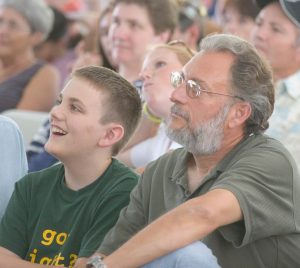
by Kim McCloskey | May 16, 2018 | About Storytelling, How To
 In The Healing Power of Stories Daniel Taylor contends that the stories we tell can reshape our characters and add meaning to our lives by reminding us that actions have consequences. Not all stories are created equal and the better stories, he says, “should be truthful, freeing, gracious, and hopeful.” Stories have the power to heal, reenergize, or even harm our psyche depending on their type, of which there are four; whole, bent, broken and healing.
In The Healing Power of Stories Daniel Taylor contends that the stories we tell can reshape our characters and add meaning to our lives by reminding us that actions have consequences. Not all stories are created equal and the better stories, he says, “should be truthful, freeing, gracious, and hopeful.” Stories have the power to heal, reenergize, or even harm our psyche depending on their type, of which there are four; whole, bent, broken and healing.
Whole stories portray good as good, evil as evil, and good wins. Most of the classics are in this category and most storytellers spend their time with these types of stories.
Bent stories portray evil as good, good as evil, and evil wins. Examples include many horror stories, pornography, and even Hitler’s Mein Kampf. Bent stories can trap us and make us feel hopeless about the world in general.
Broken stories portray good as good, and evil as evil, but evil wins. Something is broken, not right, and needs to be fixed. Examples include Lord of the Flies and 1984. These stories, while not uplifting, have the potential to motivate us to heal something broken in the real world.
Healing stories portray good as good, bad as bad and can be either whole or broken stories. In a healing story the listener is profoundly moved, changed, or healed by the experience of hearing or reading the story. The answer to the problem is offered within the story itself, often in the ending.
In the stories that we tell and the stories we seek out we can look for truth as well as hope. This doesn’t mean that we avoid sad or tragic tales because they are seemingly hopeless. Sad, complicated stories can also elevate the listener if we realize that there are more complex ways to responding to them rather than by just simply being happy or sad. If a story can move us beyond our sadness to find empathy, healing, or a call to action then the well-told tale can continue to live on long after the story is over.


by Kim McCloskey | Jul 7, 2015 | About Storytelling, How To

“There’s a lot of difference between listening and hearing.”
― G.K. Chesterton
Real listening is a skill that takes practice. Developing the habit of listening can improve your relationships, your careers, and even your next experience at the Timpanogos Storytelling Festival.
Alan Alda once said, “Listening is being able to be changed by the other person.”
So, how do we practice listening? How do we move beyond simply hearing something? Real listening is about focus and concentration. Eudory Welty, the Pulitzer Prize winning author of The Optimist’s Daughter explains, “Long before I wrote stories, I listened for stories. Listening for them is something more acute than listening to them. I suppose it’s an early form of participation in what goes on. Listening children know stories are there. When their elders sit and begin, children are just waiting and hoping for one to come out, like a mouse from its hole.”
We have a wealth of resources that can help us develop the skill of listening. Here is a list of some of the best that the internet has to offer.
True stories told by ordinary people:
This American Life – This award-winning radio program has one of the most popular podcasts on the internet. There is a theme to each episode and a variety of stories on that theme. Recommended stories- The Super or Switched at Birth.
Serial– A podcast spin-off of This American Life which debuted in October of 2014. Serial tells one story- a true story- over the course of an entire season. The first season is a story about the disappearance of a popular high school senior.
The Moth – “True Stories Told Live.” The live broadcasts originated in New York City but have become popular throughout the country. These are real people telling stories of ordinary life, with extraordinary skill. There is some explicit language in some stories. Recommended story- Fathers.
Story Corps –StoryCorps mission is to collect a vast archive of stories for future generations, to teach the value of listening and that every story matters. Recommended story- Mary Johnson and Oshea Israel, a mother speaking to the young man who murdered her only child.
Snap Judgment – If you love music you might like this new show from NPR which melds music with stories. Recommended story- Mystery Man.
Radiolab– Stories about science, technology, and the human experience. Recommended story- Space.
Literary Stories:
Selected Shorts – This weekly radio broadcast, one of my personal favorites, pairs great literary short stories with fine actors. You can’t go wrong with any of their selections so find the latest free podcast here.
Mercury Theater on the Air – Orson Welles and John Houseman started this radio theater. Their notorious broadcast The War of the Worlds allegedly caused mass panic. Try Three Short Stories: I’m a Fool, The Open Window, and My Little Boy
Classic Storytelling:
The Apple Seed – You’ll find many of your favorite tellers from The Timpanogos Storytelling Festival here. This BYU Radio broadcast offers pure contemporary storytelling at its finest. Recommended story- From Sea to Shining Sea.
Wiretap – This unique broadcast comes to us from CBC Radio One. Jonathan Goldstein brings us stories that are comedic, absurd, unexpected, and wholly engaging. It’s unlike anything I have heard before. Recommended story – Help Me, Doctor, Kafka’s Gregor Samsa seeks professional psychiatric help from Dr. Seuss.
CBS Radio Mystery Theater – I loved listening to this as a young girl when my family would take long car trips.I suspect that my dad drove around a few extra blocks as we hung on to hear the door swing shut just after the host, E.G. Marshall said, “Until next time… pleasant dreams.” Recommended story- Resident Killer.
Radio programs and podcast episodes aren’t the only way to listen to great audio recordings. Your local library has audiobooks available, often for no cost to download. Recommended story- Harry Potter series narrated by Jim Dale, one of the best in the business.
What are your favorite sources for audio stories? Let us know.

by Kim McCloskey | Aug 1, 2014 | About Storytelling, Benefits of Storytelling, Festival, How To

Rev up your appetite for the upcoming Festival with some films that celebrate storytelling. At the end of this article is a list of movies that pay homage to the art of oral storytelling. If you want to find out about upcoming movies and get scholarly with your study of film and storytelling, read on. If you would rather just look through the movie list, skip forward. Either way, enjoy the celebration, and we’ll see you at the Festival!
Story as performance art began with oral storytelling, which is still the most immediate, intimate and communal form of conveying stories. But storytelling has branched out to include many genres such as dance, music, visual art, theater, commercials, video games, and film. Many of these genres have embraced and celebrated the elements of the traditional story such as the archetypes, story arcs and themes that we see in our fairytales and folktales.
In fact, the film industry has had an obsession with fairytales in the last few years. Not only have we seen animated movies such a “Frozen”, “Tangled”, and “Brave”, but also live-action adaptations such as “Snow White and the Huntsman”, “Mirror Mirror”, and “Maleficent”. And the trend will continue with films that are in production, including “Into the Woods” starring Meryl Streep and Johnny Depp due out at Christmas, and a new Disney version of “Cinderella” directed by Kenneth Branagh and starring Cate Blanchett and Helena Bonham Carter due out in 2015.
While some films adapt familiar fairy tales, others are based on original fairy tales such as “Shrek”, “How to Train Your Dragon”, “Ladyhawke”, and “Willow.” And others draw upon storytelling motifs. “The Croods” is a retelling of the Greek legend of Prometheus. Arguably, some of our most epic fantasy films such as “Lord of the Rings” and “The Hobbit”, and the sci-fi fantasy “Star Wars” draw from elements of fairy tales, folktales, myths and legends. J.R.R. Tolkien once said that “The Hobbit” was inspired by Grimm’s “Snow White” (1) and it can be argued that the story is basically a retelling of the Old English poem Beowolf. “Star Wars”, in turn, draws upon mythological elements such as oracles, prophesies and mentorship.
Not only do many films borrow from classic story elements and archetypes, but many also pay tribute to the art of oral storytelling itself. In “Harry Potter and the Deathly Hallows: Part 1” there is an animated sequence where Hermione is reading aloud an old and familiar fairy tale told to wizard children. While she reads, the scene is brought to life with shadow puppets. This story within a story serves not only to explain the origins of the Deathly Hallows, but is also a stunning reminder of the beauty of story. J.K. Rowling once stated that this folktale was inspired by The Pardoner’s Tale of Geoffrey Chaucer’s Canterbury Tales.(2 ) In an interview published in the LA Times on January 28, 2011, animation director Ben Hibson explained, “In a moment that takes our central characters to a world of ancient fables, the titular tale of the Three Brothers, found in the book ‘The Tales of Beedle the Bard,’ has an eerie undertone, reminiscent of the timeless Grimms’ fairy tales, which I found particularly relevant for us.” (3)
Our tradition of oral storytelling and our literary canon has created the platform in which modern film makers can build their craft. Let’s look at some of the family friendly films that pay homage to this tradition. Perhaps you will find one to peak your interest and get you excited about the Festival coming up at the end of this month.
10 films that celebrate the art of storytelling:
10 films that celebrate classic fairytales and folktales:
Multiple movies based on a single fairy tale:
Is your favorite storytelling movie on the list? Tell us about it.
1 Tolkien, J. R. R. (2003) [1937]. Anderson, Douglas A., ed. The Annotated Hobbit. London: HarperCollins. ISBN 0-00-713727-3.
2 http://www.moongadget.com/origins/flash.html
3 Bloomsbury Online Chat, http://ohnotheydidnt.livejournal.com/. Retrieved 30 July 2014.

 In The Healing Power of Stories Daniel Taylor contends that the stories we tell can reshape our characters and add meaning to our lives by reminding us that actions have consequences. Not all stories are created equal and the better stories, he says, “should be truthful, freeing, gracious, and hopeful.” Stories have the power to heal, reenergize, or even harm our psyche depending on their type, of which there are four; whole, bent, broken and healing.
In The Healing Power of Stories Daniel Taylor contends that the stories we tell can reshape our characters and add meaning to our lives by reminding us that actions have consequences. Not all stories are created equal and the better stories, he says, “should be truthful, freeing, gracious, and hopeful.” Stories have the power to heal, reenergize, or even harm our psyche depending on their type, of which there are four; whole, bent, broken and healing.


